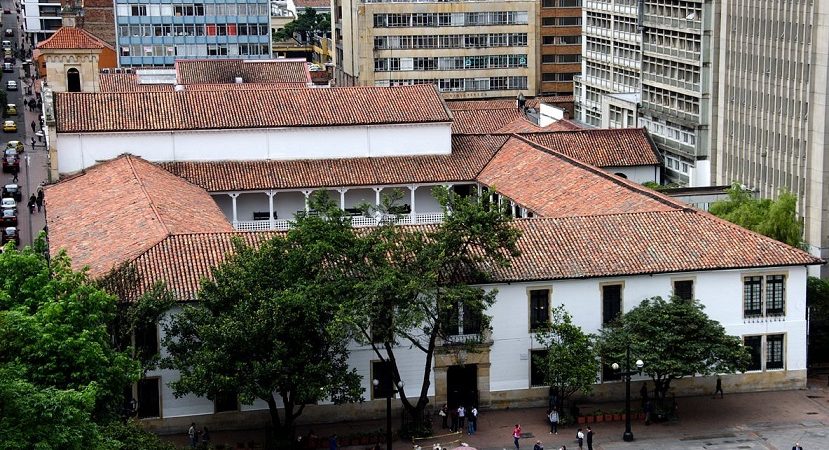With this upgrade, the Universidad del Rosario has increased its administrative, academic and research output.
In the information age, technology has become a fundamental tool for improving the quality of education. From implementing virtual platforms to providing higher-performance solutions, technological innovation has optimized computing resources and provided tools suited to the application environment that universities and campuses seek in this hybrid world.
For this reason, Intelligent CIO LATAM spoke with Juan Felipe Barajas, Director of Information Technology and Communications at Universidad del Rosario; Nicolás Prieto, Business Development Manager at AMD Colombia and Santiago Barbosa, Sales Manager for the Corporate, Business and Public Sector at HP.
They spoke about the role technology plays in the educational sector and the alliance between AMD and HP for the development of equipment and integrated solution offerings demanded by increasingly demanding users as a result of Digital Transformation.
The challenge: Ensuring the highest standards in an educational institution
In 2022, the School of Administration at Universidad del Rosario faced a challenge in their master’s degree classrooms. The graduate students required efficient processing of analytics tools essential for their program, but the available equipment was inadequate.
To address this issue, Universidad del Rosario partnered with AMD and HP to find a technological solution.
At the university, users have different levels of technology experience. Therefore, it is crucial for the tools used to be intuitive and user-friendly, ensuring adoption by all, regardless of workload or intended use.
Furthermore, the IT departments responsible for designing, implementing and maintaining the university’s resources must meet the needs and expectations of the educational sector. They strive to provide innovative and efficient solutions that can adapt to evolving technological demands.
Juan Felipe Barajas, Information Technology and Communications Director, Universidad del Rosario, said: “We have developed a comprehensive testing model to determine the equipment’s capability to handle the workload assigned while also ensuring its longevity for three to five years.”
On the other hand, Nicolás Prieto, Business Development Manager, AMD Colombia, stated: “In the past, there was a perception that AMD only offered entry-level processing. However, since 2017, our collaboration with our biggest ally, HP, has changed that perception.”
Prieto added: “Resulting from this collaboration, we now have HP machines featuring the latest generation Ryzen platform, delivering optimal performance and advanced graphics capabilities. HP’s AMD-based devices also excel in energy efficiency, a highly valued feature that provides extended battery life, especially in portable devices.”
Santiago Barbosa, Sales Manager for the Corporate, Business and Public Sector, HP, added: “A few years ago, purchasing computers was more intuitive, and comparing and selecting equipment was challenging. Our mission, particularly in partnership with AMD, has been to provide better support, accurate measurements and comprehensive services.
“This approach ensures profitability and establishes long-lasting relationships while addressing the vital aspect of device sustainability. Besides, security and the ability to function in hybrid environments are essential.”
The technological response
After a comprehensive assessment of the student’s needs, HP ProBook 445 Ryzen 7 5700U 16GB and 512 GB machines were acquired to match the processing to the required tools, optimize the investment and achieve a generational improvement. It allowed the students to use the necessary analytical tools without problems and with excellent performance.
“We have already transitioned over a thousand workstations to this processor range, benefiting tasks related to design, collaborative work and administrative duties. The performance has been remarkably positive, providing users with highly satisfying experiences. This processor family enhances routine PC activities and offers advanced core capabilities,” said Bajaras.
It exemplifies the vital role of technology in the education sector, facilitating operational enhancements in education quality, offering more effective and gratifying learning experiences and resolving issues like the one faced at Universidad del Rosario. It enables each member to work or study efficiently with the appropriate level of performance.
Barajas also discussed the usage of devices in the hybrid era.
“The landscape has evolved. Buildings are transforming into collaborative spaces, and workers no longer have constant access to these spaces as they only come in two days a week, working from home the rest of the time. And the entire technological ecosystem is influenced by this. When equipment is designed to withstand minimal cooling requirements and prevent overheating, it promotes healthier user experiences, crucial for technology management and implementation,” said Bajaras.
At the same time, technological alliances such as those between AMD and HP in the market generally allow them to have quality resources at fair prices, as well as access to the experience and knowledge of specialists to receive expert advice according to their needs, always with the commitment to develop products that allow them to improve their experiences through creativity and innovation.
“One of the decisive factors was the price. We are not purchasing just a single device but thousands. Another is resistance to harsh environments, in which, for example, coffee may fall on the equipment, and it would not suffer damage. With a team of 12 people supporting 5,000 laptops used by 13,000 students, we require robustness and security. Otherwise, it would not be cost-effective or sustainable,” concluded Bajaras.



